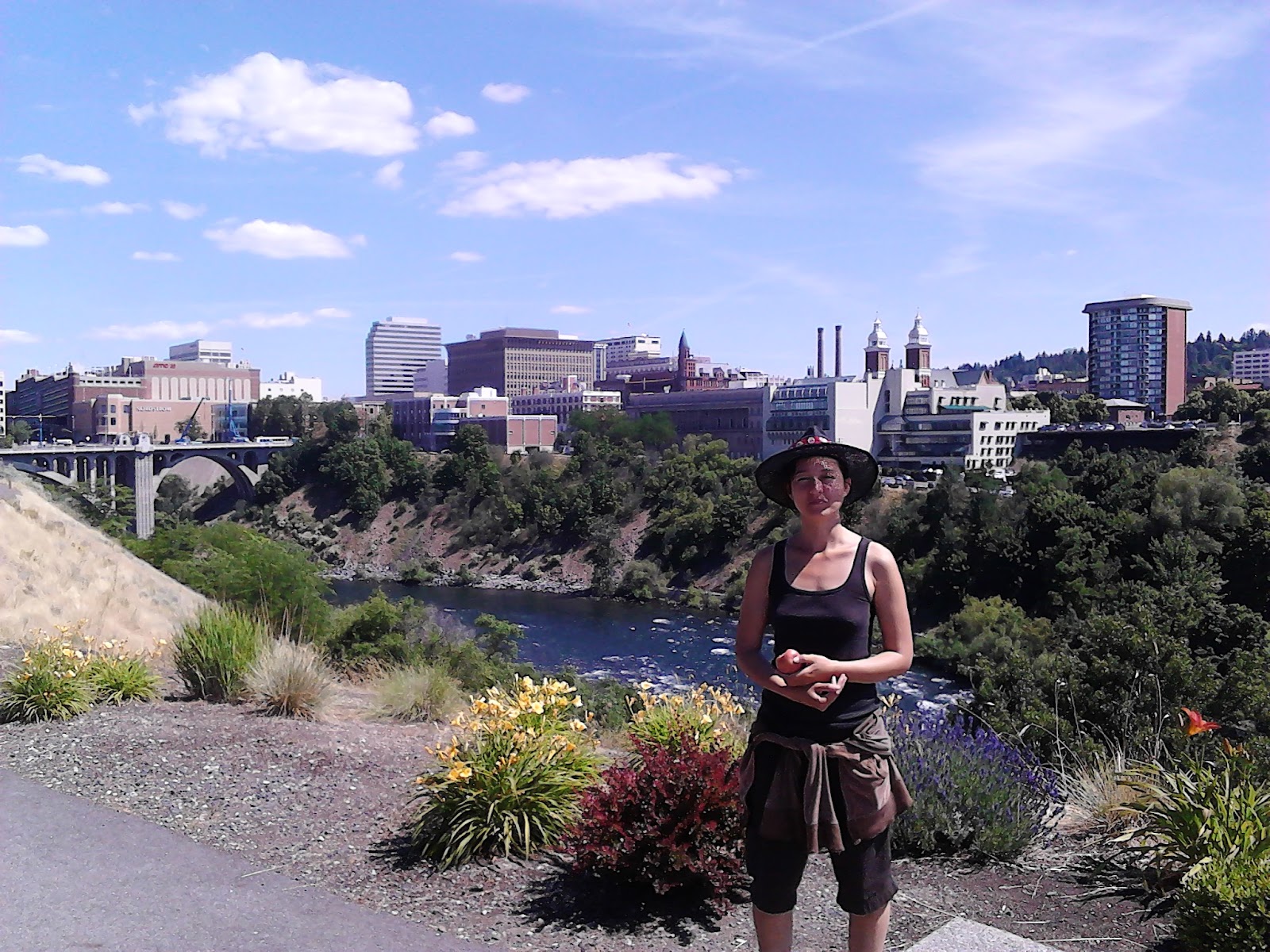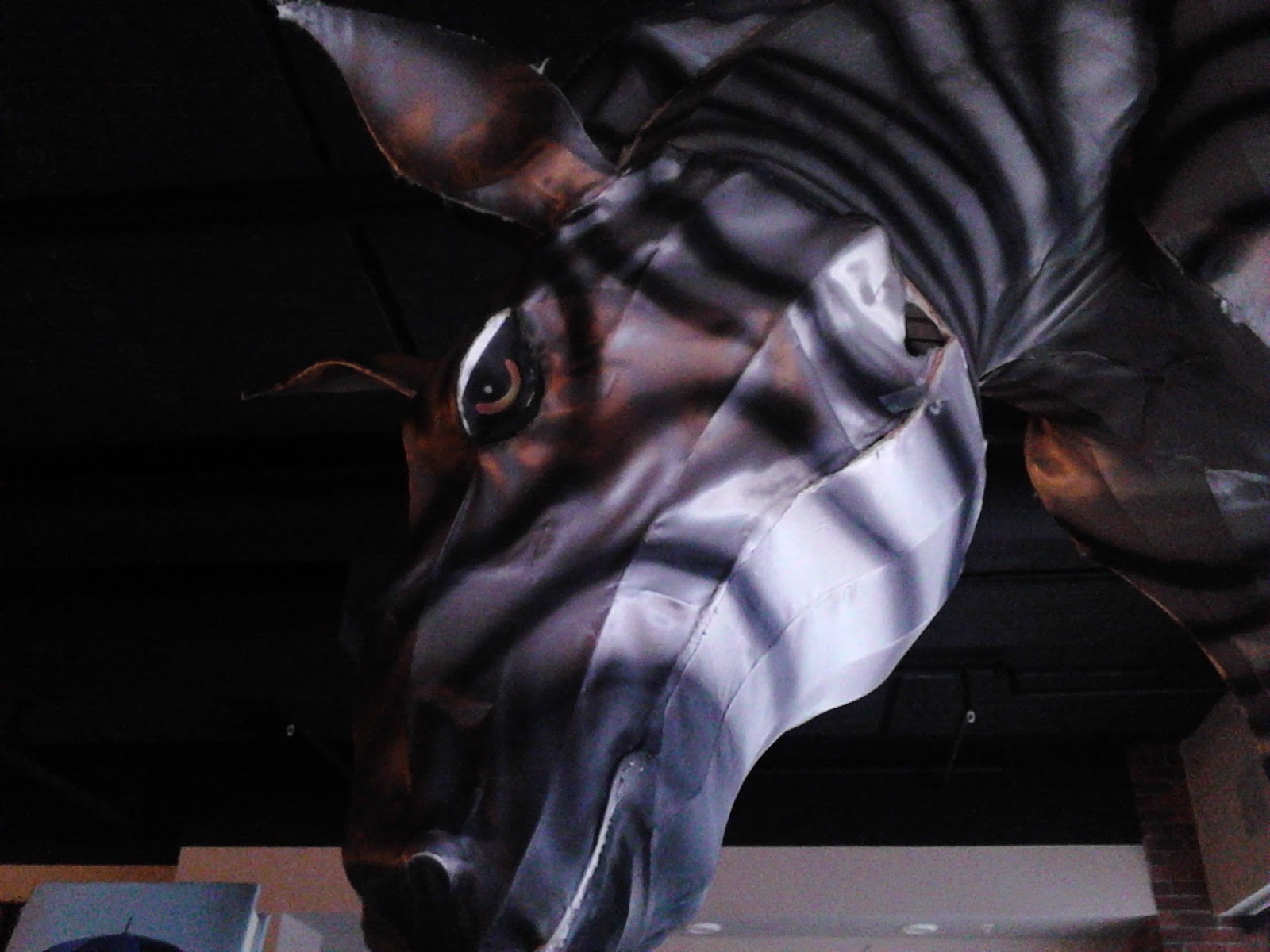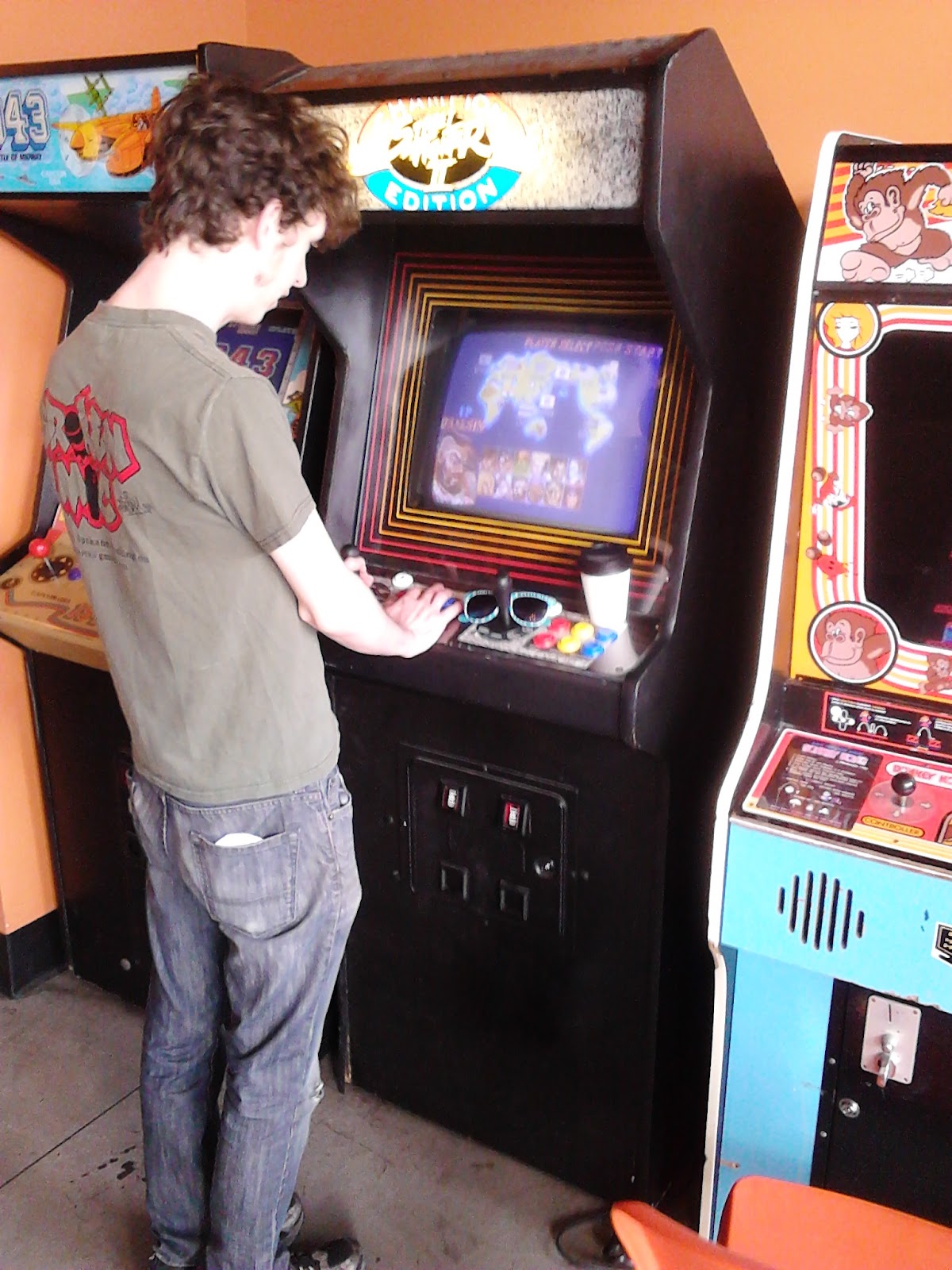Conceived as an ongoing project to live at
Spark, this ended up being something I worked on just during the summer, but let's say it goes here I can find anywhere else for it--
Writing Seen
serving writers and readers in Spokane
About this page
Since coming to Spokane and to Spark, I’ve met so many talented writers and inquisitive readers: you can find both of them on and around that first bookshelf as you come in the front door, the one labeled LOCAL AUTHORS.
I’ve been reading through that shelf, and asking the people I meet some questions, and writing, of course. You can find me there on Tuesday afternoons for Drop in & Write; or, if your writing is there, you may find me emailing you to invite you to talk about it with me and to share ideas about whatever other projects you may be working on.
Many people I’ve talked to have expressed an inkling, an empty feeling, a sense of an absence about the writing scene here in Spokane, and a wish for more connection. To me this suggests that there is even more great writing happening than what is contained by the shelf I like to linger by. I would like for this website, like Drop in & Write, like Spark itself, to be a place dedicated to bringing more of those writers and readers together, making that writing scene more visible and accessible.
So as a creative outlet and a gathering place, here it is, for all who may be interested.
About me
I love reading, writing, and traveling. I am a substitute teacher, I would say I am a pretty good one, and a careful reader, a decent writer, a fortunate traveler. - Wesley Schantz (contact)
(tabs/links)
-authors (link to a list pulled from librarika, then with links to each author’s website/blog?)
-readings and conversations (July essay below)
-grants, jobs, contests, journals (again, we can collect these from all over)
-courses (offered by local organizations, schools, or online by local writers)
(featured essay for July)
Is There a Soul? and Essays by Madeline McNeill -
her website


“I called it Is There a Soul? because…” A long pause. “I wanted it to indicate that I am very much thinking about soul, about spiritual experience, rooted in felt experiences. I wanted to go to the heart of it.”
The question still gives the author pause. It is a living question, and her answer demonstrates the care with which she has treated it in her work.
Madeline McNeill describes herself as a singer and a body philosopher. She realized what she was doing was philosophy after an epiphany born of a period of intensive self-massage and self-reflection. Massage, she discovered, was able not only to relieve the tension in her core muscles, improving her singing, but also to trigger a new freedom in her thinking. What at first seemed like a breakdown of her previously held structure of thought gradually resolved itself into new structures and creative work, with a new language to talk about it.
Is There a Soul? records her inner dialogue as a conversation between a student and a teacher as they go on posing and responding to questions. The reader, in turn, becomes engaged with these voices on the page in a process Madeline calls sub-posturing, subtly forming the words within core muscles. As we read silently, we say each word, each phrase to ourselves, deep beneath the surface of spoken language, but nevertheless evoking them through the body, not merely revising them as thoughts within the mind. In a manner, this very act of reading, viewed from the perspective of body philosophy, is already “moving toward body spirituality,” a paradigm that gives readers a new way of thinking about Christianity’s core tenet, the incarnation of the word. I am reminded that spirit comes from a word meaning breath, and soul from a word meaning butterfly (pneuma, psyche)-- things which hover on the threshold of intangibleness.
“Can I use the word soul or spirituality like this? Can I reclaim the soul for the body?”
She asks the essential questions anew, then says with the confidence of her lived experience, “Self is body, and mind is an exercise,” as is soul, an experience of consciousness. Operating within parameters, soul is neither infinite nor eternal, any more than any one of its emotive expressions is: love, will, peace--each has its limit, under this framework.
As Madeline puts it, “It is unhealthy to step off a cliff and think you can fly.” She laughs wryly at the way society holds forth notions of infinite love or goodness for those with the leisure to pursue them while the lower classes are left to feel responsible for their own negative “body emotions...It’s so messed up.” Thus, she insists on the “radical, activist component” of body philosophy.
In our talk, the tensions between collaboration and independence, completion and ongoing reflection are also recurrent themes. For Madeline, the classical philosophical form is at once easy and natural; she submitted the first drafts as part of a writing course, received positive feedback, and got in touch with an editor at EWU, Amanda Maule, who helped shape the book into its current form. However, unlike Platonic dialogues, her speakers are both female. In the cover art, she had the stock image adapted to remove the Adam’s apple. Since then, she has continued elaborating her ideas in a series of essays, and even inserted a section on beauty into the published book. She has also considered staging the work as a play or adapting it as a film, and is in contact with a group of dancers who may be interested in performing it.
(August)
West of You by Mel Murphy -
her amazon site
(I forgot to take pictures that day, so here's one from Spark)

By the front door of the Rocket Bakery on Garland, on one of those big community boards covered with announcements, there’s a flyer (like the one you can also see at Spark) advertising free stories on Audible. Sitting with me at the corner table, author Mel Murphy recounts the process of creating those stories which have been such a revelation for me to listen to and to read.
West of You was published in 2015 in the midst of her many moves between cities in the Northwest and stints in Nevada. After years of submitting stories to contests and literary magazines only to be disillusioned, Murphy began to self-publish in print and online.
She has been impressed by the quality of voice talent and production her work has received on Audible, where short stories are something of a rarity. She reflects that even if she is giving away stories by making them freely available online, something which initially made her skittish at the thought of her ideas being stolen, she now looks at it differently: “At least somebody would be reading them.”
I have been and I highly recommend them. For anyone who takes writing seriously as a vocation and aspires to it as a profession; for anyone who has manuscripts of novels and screenplays and other projects waiting to see the light; for anyone who loves writing and wants to read something good, Mel’s short fiction, like “The War with Canada” which was shortlisted for a Bridport Prize, will provoke both admiration and controversy, awe at something strange and wonderful, but also a recognition of something eerily familiar.
Mel’s stories so insistently immerse the reader in her characters’ uncomfortable personal situations and in settings bespeaking a withering social critique. As we talk, we continually come back to the context of trying make a living as a writer in this time and place. We like this area. “It has trees, it has water.” She reflects wryly on the likelihood that she and others will soon be priced out of this town and pushed further inland, as they have been ousted from Seattle and Portland. “I feel like I’m ahead of a curve for the first time, you know? And pretty soon I’ll have to move on to Boise.”
In her fiction, this fatalism is moderated to some extent by a similar note of black humor. In the closing story, “Land of Nod,” Murphy imagines a cohort of freedom fighters sabotaging the inevitable march of a plutocratic regime, but the hope is ambiguous. “It’s the old question: is greed hardwired or can it be outweighed by altruism?” In other stories, like “Object of Desire,” the question might be reframed along these lines: Is the beauty of a work of art or a human being enough to ensure we value them for their own sake, or is it all reducible to money and power?
Her outlook is bleak. But still, time and again, there is a reassertion of the possibility of small victories, reconquests of dignity by characters whose very existence is imperilled by the ignorance and greed of their neighbors. The realization of the bravery within themselves to survive their daily life and the determination to get out, constitutes an epiphany.
(September)
Mark L. Anderson (who's since been named
Spokane poet laureate!)
I Spent My Summer Nights on the Patio of the Old Empyrean [154 S Madison]



because we wanted to save rock and roll
we wanted to save poetry
Mark Anderson writes.
His is one of the first four or five poems in Railtown Almanac. (The poems are printed alphabetically by author.) It struck me at once as being just the thing I was looking for, though I didn’t know I was looking for anything when I took the volume from among the zines and chapbooks on the bottom shelf.
Maybe this is a way in which poetry gets saved, by people reading it without knowing or expecting too much and then encountering, suddenly, everything. Maybe this is how it saves itself, by letting us know we are missing something when we weren’t aware of it ourselves.
The long title reminded me of some of the tracks on Sufjan’s Illinois album, so even as someone not from around here I could feel a real nostalgia of my own for the kind of place Anderson was conjuring. The mixture of earnestness and irony in the repeated becauses appealed to me; I loved how concrete images of a time and place now vanished balanced the grasping for more universal meaning, never letting the earnestness ring shallow, the irony become self-assured, the meaning seem either too sensually ephemeral or too rigorously abstract.
Like Francesca and Paolo, I read no more that day. Even after reading the rest of the anthology later, I think “I Spent My Summer Nights” stands out.
The story behind the poem is already there, metaphorically, in its imagery of bricks, trains, and the quicksands of time. At nineteen Anderson started coming to Empyrean. At that time there was a very small, anarchic spoken-word poetry scene around here. Sometimes half the people onstage or in the audience would be half-naked, or could at least brag about having been to shows like that in the region. The Empyrean was the only place in Spokane offering a venue for anything of the sort, and Anderson was enchanted. “I kept coming back,” he says simply. He had always been into poetry; now he got into it “a little more and a little more, and pretty soon that was my life.”
The Empyrean closed its doors in 2011, a casualty of the recession. Nevertheless, generations of artists had laid the groundwork for the live music and poetry scenes to thrive today. Now that more venues are welcoming more diverse new talent, the cycle of boom and bust that claimed the Empyrean seems to have been, if not broken, then mitigated for the moment. Surveying the multifaceted offerings, Anderson suggests that there is perhaps less cross-over now between poets and musicians, but within poetry, between slam poets and others in the wider literary scene, there is still plenty of cross-fertilization, despite each event catering to a more distinct audience.
Among the new venues are Boots, where Anderson now works, and the Bartlett, where he used to be active participating in slams. With Kurt Olson, a fellow poet from the days of the Empyrean, Anderson started and restarted open mic shows, trying to make up for what they had lost, over the course of several years. He would “run it into the ground,” and then they would get the project going again but with a little more framework, a little less “everything goes,” until by and by they had come up with Broken Mic’s current format.
Like what happens when you write poetry according to a formal meter or rhyme scheme, Broken Mic provides some limits within which poets channel their creative freedom into art. There are three rules. The first they call “Sanctuary,” meaning there is no censorship, but nothing dangerous or threatening will be permitted, either. They have almost never needed to enforce that one. Rule 2: Everyone who signs up gets three minutes, then they’re cut off. Rule 3 (“more of a philosophy”): What you put in is what you get out. About ten or fifteen of the writers featured in Railtown Almanac have put their Wednesday nights into it regularly, by Anderson’s count.
In fact, the open mic scene looks to be thriving. Spokane will be hosting the Individual World Poetry Slam this year. Actually it’s more of a national than world-wide event, Anderson explains, though there are some entrants from other English-speaking countries. How do you judge a poet, to say nothing of choosing a world champ? (Besides putting some laurel on their head). Originally the scores were a joke, but now people take them more seriously. Slam poets are scored on performance, content, and originality. Five random people from audience serve as judges. “You’re trying to find people who’ve never been to a slam before to be your judges.” The idea is to “engage people, so that they’re rooting for a poet, trying to pay attention to who’s winning,” and in turn it pushes poets to consider their audience. Success onstage can translate to the page, as Anderson’s own poem demonstrates. He also cites Patricia Smith, who would blow away the competition when she performed in slams, and who is now recognized as a major American poet in literary and academic circles.
Slam poetry for Anderson was a place to start, but it’s not what sustains him now. Why isn’t he competing anymore? Because it no longer feels genuine for him up there. “It used to be the biggest thing, like being a rockstar.” He is more in background of Broken Mic now, not hosting anymore. “It was a good time to pass it on, good for it grow organically away.” In his poetry he composes pieces that will read equally effectively both on the page and aloud. He usually has some kind of a picture of audience in mind, internalizing the reader/listener in his work.
He has also been exploring the philosophy of language games. To take an example, I am struck again by how poetry reveals completely new meaning in the most ordinary words as we discuss the ambiguity of the pronoun “we” in his poem. “We” could be people who were there with him, literally; it could also be the poet and any reader who reads the poem, who has been there in the sense of the idiom, “Yeah, tell me about it. I’ve been there.” For everyone has a version of this story, equally valid. Human life, like summer, is fleeting. We all have a need to deal with the desperation that comes with realizing this, and we have all felt a youthful sense of urgency about it.
One other possibility is that “we” are anyone who can look back and laugh. Wanting “to save poetry” is hilarious, we agree. The next line is
because everyone laughed at us
It’s no fun explaining a joke, but still I ask Anderson to humor me. He goes on: “I have some distance from that feeling of being just on the forefront, of doing the coolest thing that’s ever been done. Every generation thinks they’re the one, everyone who stumbles into the basement rock show feels they’re the one” who is going to save poetry.
That word “save” has a particular weight, too--economic, theological, and aesthetic. In the midst of laughing at ourselves, sometimes poets and readers of poetry do get concerned that “poetry is not reaching out and grabbing people.”
Can poetry grab you in a classroom, or from the bottom shelf of a library? Or must it be down in a basement or out on a patio? Must poetry come as a discovery in the world?
“Huge personal engagement to an art form,” Anderson believes, comes with “feeling that there are stakes for you with an art.” Commonly it’s music that moves people this way, more so than poetry, he suggests. Music--whether mainstream, indie, or classical--moves us, and it makes sense that poetry, which we hear like music, only less often, would do the same, only less often.
If the only experience we had of music was reading sheet notation in school, people probably wouldn’t be as excited about it.
“We tend to try to form our identity counter to who we’re supposed to be at school or at work, but this is not to say there aren’t seeds from those places,” Anderson says. Part of what he does now is visiting schools and colleges, talking, performing, organizing and spreading the word.


